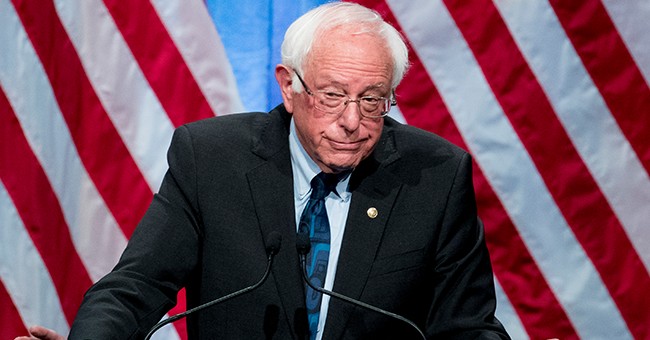By Chris Wright
Bernie Sanders reintroduced Medicare for All legislation in the Senate, recently. He should give it a rest. His single-payer proposal hasn’t gotten any better with time. Witnesses and Republican senators tore it to shreds in a hearing last week.
Sen. Ron Johnson of Wisconsin pointed to the government’s “miserable failures” on testing, restrictions on treatment, and its other sorry responses to the COVID pandemic. “Why in the world would anybody put government more in charge of health care?” he asked. He said there will be more bureaucracy, not less, if the government takes over all healthcare, producing less innovation and higher costs.
Sen. Rick Scott of Florida said Bernie’s plan would abolish Medicare and private insurance. Worse, it would “have the federal government deciding which procedures you get and when you get them. Think about that…Do you want the government to make these choices for you?”
A healthcare policy expert testified Bernie’s plan to pay doctors and hospitals 30 to 40 percent less would force many physician practices and hospitals to close or significantly cut back on services (p.11). If you think we have a doctor shortage now, just wait. She further testified Bernie’s plan would also cut access to new medications and pull the rug out from under new drug development, including new cancer treatments (p.13). She noted that single-payer supporters keep saying nationalized healthcare would cut administrative costs, but claims would still need to be processed which means the administrative cost differential would largely be a wash (p. 13).
A budget expert testified the additional cost of Bernie’s 2017 plan, over and above current federal healthcare spending, would be around $38 trillion in the first 10 years (p.2). If you add in current spending, the total cost is more like $60 trillion (p.3). You could double all personal and corporate income taxes, and it still wouldn’t be enough to pay for single-payer (p.2). As I’ve commented before, there’s never enough money to pay for single-payer. The National Health Service in Britain is always running out of money and asking for more.
The arguments for and against single-payer haven’t changed much in years. Arguments against single-payer coming back around recently include it would raise taxes thereby reducing GDP and the incentives to work and invest; produce massive fraud, and lead inescapably to rationing and long wait times as other countries have found out. Most insidious of all, though, is how single-payer will completely politicize all of medicine. The kind of care you get will depend on who you know in high places. Care will be doled out to privileged classes, perhaps even by race and ethnicity. The federal government is already moving in that direction, now requiring private insurers selling Medicare Advantage plans or Obamacare plans through government exchanges to report race and ethnicity data beginning in 2023 (p. 1).
Bernie and his supporters know all about these problems but never talk about them. All you get from them is happy talk. That should make you deeply suspicious of their motives. Do they really want better healthcare for all, or are they just looking for a way to control the people, as a congressman let slip during the Obamacare fight?
When Bernie and other single-payer supporters stop the happy talk and start addressing the very real problems their proposals will cause, then I might start to listen. Until then, my message to them is ‘in the future, you will control no one and be happy.’
Chris Wright is the founder of Liberato U.S. This article originally appeared on May 16, 2022, on The Daily Skirmish blog. Reprinted with permission
